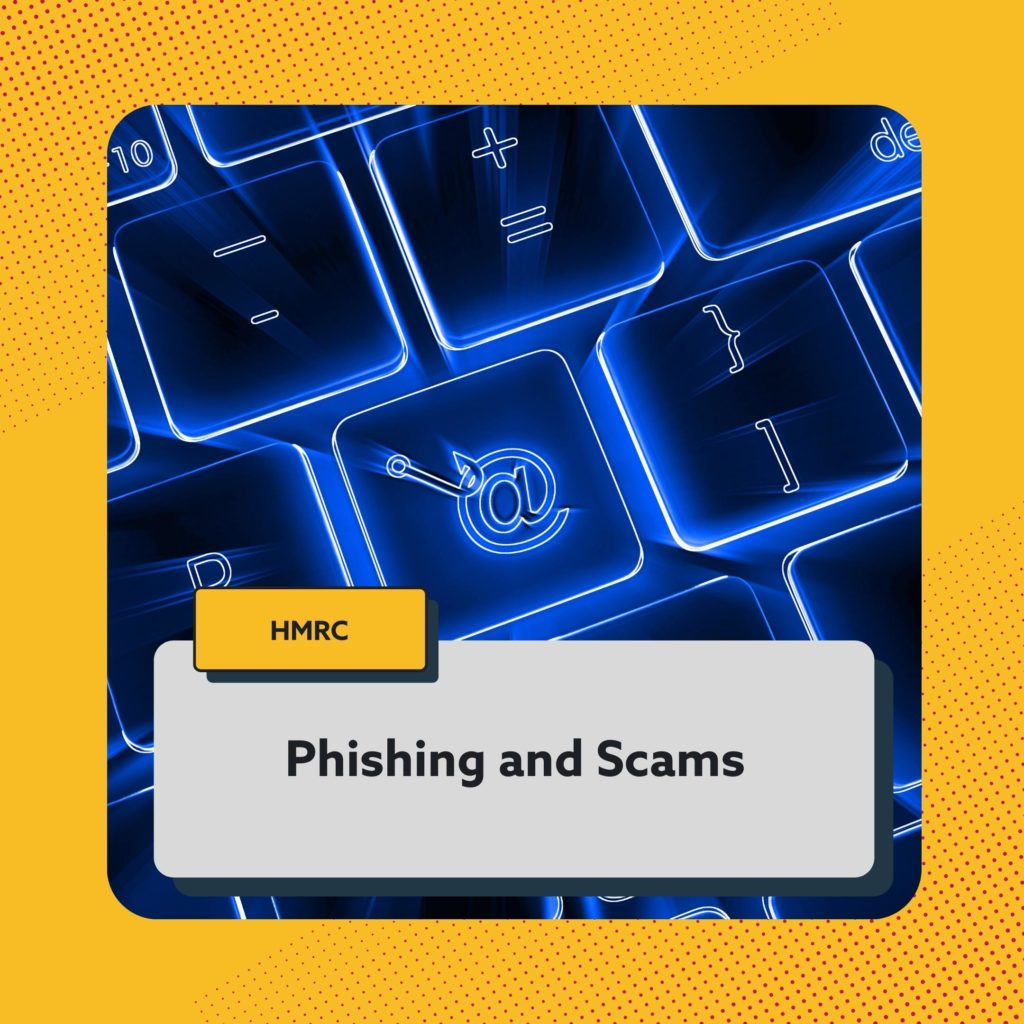

Unfortunately, we live in a world where phishing emails and scams are increasingly common. It seems no one is safe from fraudsters or hackers pretending to be large companies and well-known brands. HM Revenue & Customs (HMRC) is no exception either.
In this blog, we give you some of the examples of scams that are out there purporting to be HMRC. If you need further information on cyber security or how to keep yourself safe online, read our emails and cyber security blog.
Currently, there are a lot of scams relating to Coronavirus (COVID-19) so be aware that the contact you receive, either text, phone or email may not be genuine and to contact HMRC directly.
Email Scams
There are emails scams at the moment, in particular, telling customers of HMRC that they are legible to claim an income support scheme credit during the pandemic. This phishing email has been issued in various formats. If you are unsure of any emails you receive from HMRC it’s worth checking the email address of the sender. It’s best not to click on any links within the email. If you are unsure but want to find out if HMRC is genuinely trying to contact you, it’s best to get in touch with them. Always report phishing emails to the relevant authorities.
Tax refund and rebate scams
HMRC will never send notifications to you by email about tax rebates or refunds. If you receive an email stating as such it’s best to report the email to the relevant authorities. You can also forward the email to HMRC if you are unsure and then delete it.
Text Scams
Do not reply if you get a text message claiming to be HMRC offering you a tax refund in exchange for personal or financial details. HMRC will never ask you for personal or financial information when they send text messages. Don’t open any of the links in texts either.
Suspicious phone calls
HMRC are aware of an automated phone call scam. It will tell you HMRC is filing a lawsuit against you and press 1 to speak to a caseworker to make a payment. HMRC have confirmed that this is a scam and you should end the call immediately. This particular scam has been widely reported and often targets elderly or vulnerable people.
Other scam calls may refer to National Insurance number fraud or offer a tax refund and request you to provide your bank details. If you can’t verify the identity of the caller, HMRC recommends you don’t speak to them.
The scam calls use a variety of phone numbers. To help HMRC investigate you can share the call details on HMRC’s reporting form. It’s important to include the dates of the call, the phone number used and the content of the call.
There are other ways fraudsters use HMRC as a way to get your information. It’s important to know what can be a scam over genuine contact. Below is a checklist that can help you decide if the contact you’ve received is a scam. You can use this checklist for emails, phone calls and texts.
It could be a scam if it:
- rushes you
- is threatening
- is unexpected
- asks for personal information like bank details
- tells you to transfer money
- offers a refund, tax rebate or grant
For more information, you can contact HMRC.
You can check a list of genuine HMRC contacts.
For information on how to report HMRC Phishing and scams please contact HMRC.

